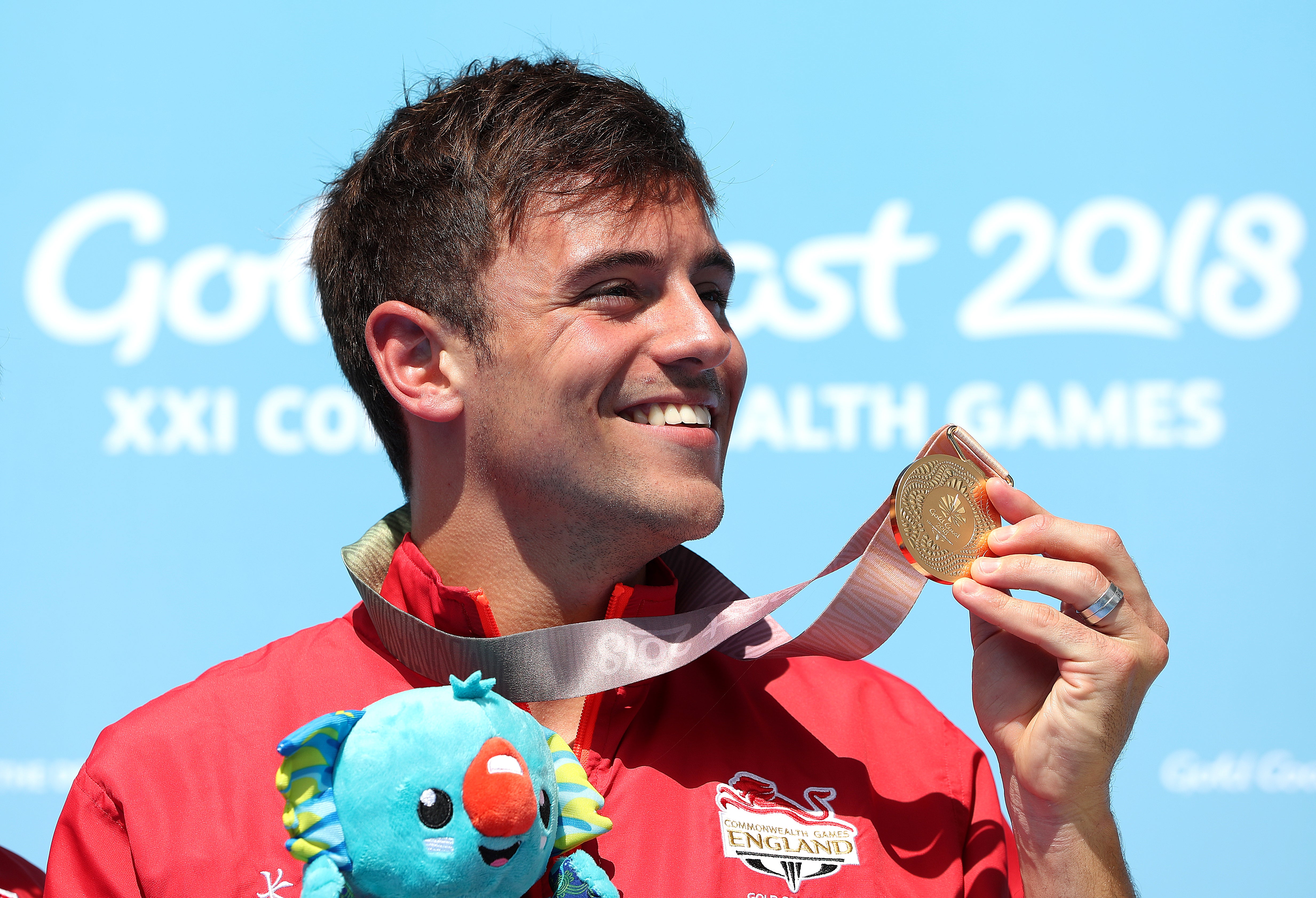The Independent's journalism is supported by our readers. When you purchase through links on our site, we may earn commission.
I was a swim coach and I agree with Tom Daley – trans athletes need more inclusion
FINA’s decision has been divisive, but I believe the categorisation of trans athletes will increase acceptability, inclusiveness – and allow us to celebrate them as national heroes


Your support helps us to tell the story
This election is still a dead heat, according to most polls. In a fight with such wafer-thin margins, we need reporters on the ground talking to the people Trump and Harris are courting. Your support allows us to keep sending journalists to the story.
The Independent is trusted by 27 million Americans from across the entire political spectrum every month. Unlike many other quality news outlets, we choose not to lock you out of our reporting and analysis with paywalls. But quality journalism must still be paid for.
Help us keep bring these critical stories to light. Your support makes all the difference.
I have coached some of the bravest women in sport, who have fought social exclusion and cultural barriers, just to participate in their chosen vocation.
While working for the United Nations in Pakistan, I volunteered my time as assistant coach to the national swimming team. The full-time coach concentrated on supporting the men, and I concentrated on supporting the women.
If you were to think of a group of athletes who had to struggle against social norms and exclusion, being a female swimmer in an Islamic country would be among those facing the greatest challenges, merely to participate.
While none of the women and girls I coached ever achieved an Olympic gold medal, they did win their heats at Olympics and often won medals at the Asian Games. Simply competing showed other women and girls in Pakistan that participation in sport was possible.
Back in 1988, when I was swimming, a courageous young boy named Mark was in my squad. Mark was almost totally blind and totally deaf – but he had the heart of a horse and the character of a great human being. But who could he compete with on a level playing field? Where were the examples for differently-abled people to participate and compete against peers?
1988 was a turning point year for the Paralympics. It was the first time the Paralympics and Olympic Games took place in the same year and the same city. For the first time, the Paralympics really could be seen as equal. The Games empowered many differently-abled people to participate at the highest possible level. The key to their success? The creation of level playing field categories of competitor.
The categorisation of athletes into fair categories was, I believe, not excluding athletes – but inclusive of athletes. Categorisation was critical for inclusiveness.
Likewise, for those who are getting older, masters swimming and masters sport has done the same. While I cannot meaningfully compete against the 20-somethings in swimming, I can continue to compete at the highest level against my peers.
In 2002, I had the good fortune, and hard work, to win the silver medal in the 200 metres butterfly at the World Masters Games. Thanks to categorisation of sex and age, I can still hope to compete at the elite level for the rest of my life, and maybe go one better than silver.
Masters sport is not “ageist” or “sexist” because it has age and sex-based categories. The categories allow inclusion. This inclusiveness, brought by creating categories, allows people to compete at the highest level.
FINA, the world’s governing body for swimming, has come out with new rules for the competition for transitioned athletes. But while I agree with Tom Daley on one important point – that transgender people should absolutely have the chance to “share their side” – (Daley has also said he is “furious” with FINA’s decision), I actually think the new rules will help them do so. This is why.
In my opinion, these rules are inclusive – not discriminatory, much in the same way masters categories and Paralympic categories have proved to be inclusive and encouraging of grass roots participation.
And, just as I recognise the science on climate change, and the science on Covid, I recognise the science in FINA’s report. Once a person has passed through puberty, there are aspects of their skeleton-muscular development that may give them a natural advantage or disadvantage.
This is best demonstrated by the almost total absence of discussion around female to male transitioned athletes. Female to male transitioned athletes are almost anonymous, because in strength and speed sports it is difficult for them to compete at the elite level given the disadvantage in competition against athletes who were assigned male at birth.
While LGBT+ advocates have been vocal in support for male to female transitioned athletes, these advocates are shamefully silent on female to male transitioned athletes. Yet it is my belief that a female to male transitioned athlete needs categorisation for them to compete at the highest level.
Sport, they say, is a great equaliser. Through the Paralympics we have welcomed differently-abled people as national heroes through sport. The increased visibility empowers differently-abled people to have a go at whatever sport or life choice they wish to pursue.
Categorising masters sport allows people to strive to compete, perform and stay fit all their lives.
To keep up to speed with all the latest opinions and comment sign up to our free weekly Voices Dispatches newsletter by clicking here
The example of the brave Pakistani women and girls in swimming, empowered others to follow in their footsteps against social norms and blockages. And as much as we may wish it not to be so, trans people still face many social blockages.
In my own extended family, my trans relative made me aware as a young child the difficulties of gender identity and battling for acceptance. I was a small child in the 1970s when I witnessed her struggles and how she was treated by other members of my family. Even then, I knew it wasn’t fair or inclusive, although as a small child I did not have the words to express that knowledge.
FINA’s decision has been divisive, but I firmly believe the categorisation of trans athletes will increase acceptability, increase inclusiveness, and allow us to celebrate trans athletes as national heroes.
Join our commenting forum
Join thought-provoking conversations, follow other Independent readers and see their replies
Comments